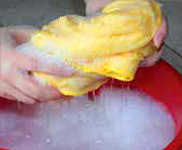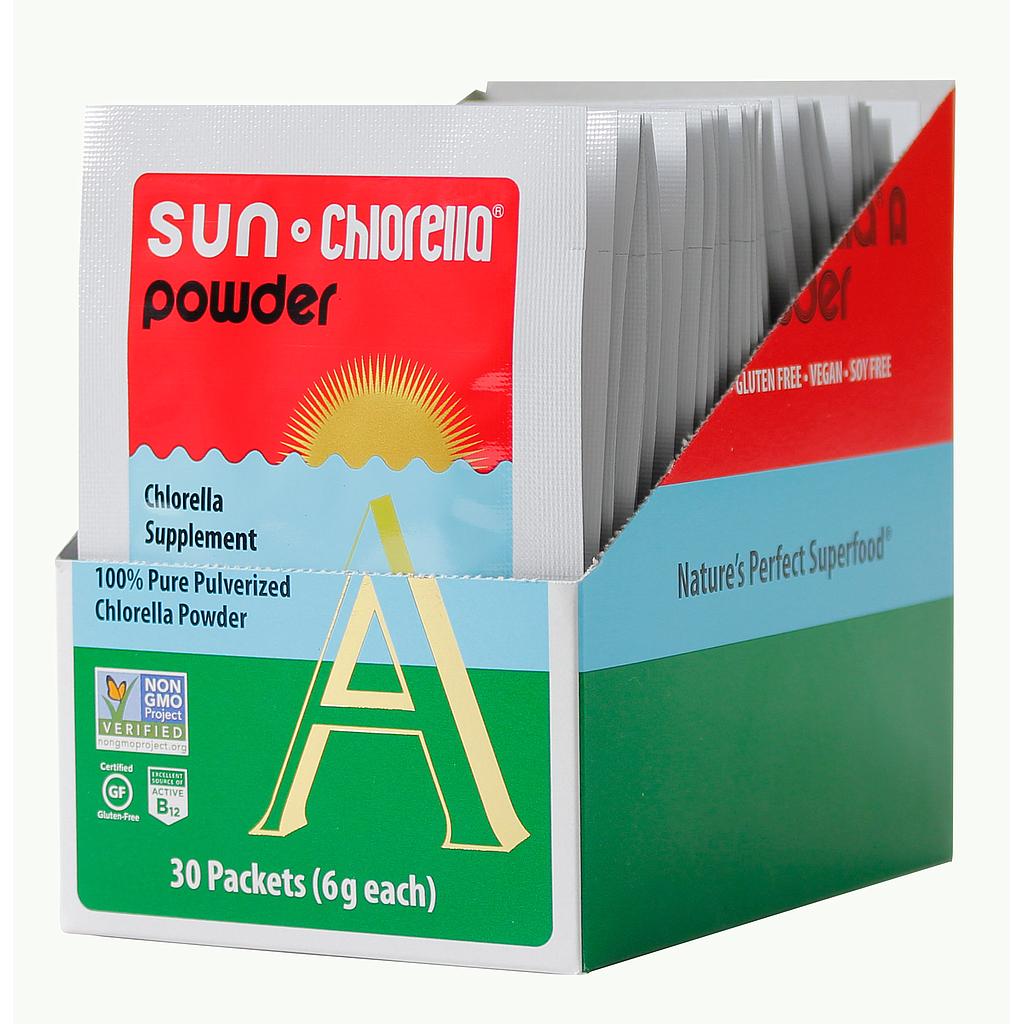.
Don’t Miss Out On This Essential Brain Vitamin!
Just a year ago, Public Library Of Science (PLOS) One published yet another study showing that as we get older, we lose significant amounts of one of the world’s most important nutrients . . . Vitamin B12.
Every organism in the world seems to need this vitamin – “from whales to sea cucumbers,” according to one B12 researcher. Vitamin B12 is like gold in the realm of living creatures. Simply by making B12, a microbe can influence the organization of a whole microbial system.
And when it comes to humans, B12 is essential for:
-
Healthy nerve development and the formation of the fatty myelin sheath that covers and protects our nerve
-
The production of neurotransmitters, dopamine and serotonin.
-
Healthy red blood cell development.
-
Proper synthesis of DNA throughout the body.
B12 is fundamental to how we live. Unfortunately, B12 deficiency is a global health problem. In the U.S., as many as 39% of us are at risk for low B12.
And this has dire consequences when it comes to how we feel . . . and how we think . . .
The Consequences Of Low Vitamin B12 Levels
An estimated 27% to 49% of senior citizens with dementia are low in vitamin B12. And it doesn’t take much to impact your brain function . . . Researchers at Tufts University demonstrated that seniors with only a slight B12 deficiency were at high risk for cognitive decline.
The Third Canadian Consensus Conference On The Diagnosis And Treatment Of Dementia concluded that all elderly people with dementia be screened for B12 levels.
In a 2005 study, 19 elderly people with dementia were treated with vitamin B12. Twelve of the patients recovered their brain power simply by taking this vitamin. The researchers pointed out that the patients who responded to B12 treatment had distinctive cognitive problems. They hadn’t lost their language abilities. But they seemed to have problems with making decisions, orienting themselves in space and concentrating.
A two year study at Oxford University involving 270 70-year-olds with mild cognitive decline and low B12 levels showed similar results. Oxford researcher Dr. Helga Refsum reported that high doses of vitamin B12 reversed the decline in patients who took it.
These and other studies show that vitamin B12 directly impacts how well our brains function.
But the physical proof of this connection is even more startling . . .
When researchers did MRI’s of people’s brains and matched them with B12 levels, they found when you don’t get enough of this vitamin your brain actually shrinks. In contrast, Dr. Refsum’s Oxford study showed that by getting more B12 and other B vitamins you could actually slow this rate of brain atrophy.
And a B12 deficiency doesn’t just shrink your memory . . .
Vitamin B12 May Keep You Sane And Happy
Several studies have linked low B12 levels to depression. One study with disabled women found that women with low B12 levels were TWICE as likely as their counterparts with normal B12 levels to be depressed. People with schizophrenia also have distinctively low levels of vitamin B12. The evidence linking a number of psychiatric disorders with low B12 levels is so compelling, psychiatrist Dr. Emily Deans reports B12 screening and injections are one of the first things she does for many of her patients. ..
In one striking case study, doctors treated a 66-year-old woman who was hospitalized for psychosis and severe depression with B12 injections. To their amazement, her symptoms were almost completely reversed as her B12 levels crept up.
Dr. Deans cautions that B12 isn’t necessarily a one-step cure for psychiatric problems. In most situations, it is a significant part of a more complex solution. In 2013, Pakistani researchers showed this by combining B12 and antidepressants.
In this randomized clinical trial, they divided 74 people with major depression and low B12 levels into two groups. Half of their patients took just anti-depressants. And the other half took vitamin B12 and anti-depressants.
A full 100% of the group receiving the combination therapy experienced, on average, 20% improvement in their scores on a test measuring depression. This is compared to only 69% of the placebo group who only took anti-depressants.
Without question, B12 deficiency may cause serious cognitive, psychiatric and energy problems. But older adults aren’t the only victims. The impact of low B12 levels on children are heartbreaking . . .
Low Vitamin B12 Levels May Set Children Back For Life!
Problems from low B12 can start in the womb. Six case studies of vegetarian and vegan mothers showed consistently poor brain development and signs of retardation in their infant children. The researchers link this to the B12 deficiency in the mother’s diets.
Children who are not getting enough B12 while in utero also risk problems with insulin resistance, low birth weight and poor motor skills. Finally, this deficiency has been connected to miscarriages and pre-eclampsia.
Sadly, the problems experienced by children with low B12 levels continue long after birth . . .
• In India, researchers found that children born to mothers without an adequate B12 supply due to a vegetarian diet had a harder time keeping their attention on a task and remembering short term.
• Children in Guatemala who were low in B12 performed worse in school, had attention problems and problems with delinquent behavior.
• Two European studies have demonstrated that children who are on vegan or macrobiotic diets - and at risk for B12 deficiency - perform worse on intelligence tests and show poor neurological development.
• And in 2016, researchers found children with autism had one-third of the B12 in their brains that their peers had.
While some evidence shows that B12 supplementation can reverse some of the damage, much of the developmental and neurological damage may be permanent.
Are You At Risk For Low Vitamin B12?
B12 isn’t an easy nutrient to get enough of.
First, it’s a hard molecule to find. Not many microbes make it. B12 is so hard to build that some researchers call it the “Mount Everest” of molecules. To make B12, these organisms put together about 30 different components in a complex jigsaw puzzle-like process.
But even once you get some B12, it’s hard for your body to use it.
First, you need enough stomach acid in order to separate vitamin B12 from the proteins it’s associated with. Then, in order for your intestine to absorb vitamin B12, it needs to mix with a special protein called “intrinsic factor.”
As we age, our bodies stop producing enough stomach acid and intrinsic factor. So even if we get adequate amounts of vitamin B12 in our diet, our bodies don’t absorb it very efficiently. For these same reasons, people taking antacids or proton pump inhibitors and people with...
3 Healthy Ways to Get the Most Out of Spring!
Ah, spring! After the long months of winter, there is nothing better! You can feel your whole body come alive as the birds start chirping and the flowers start pushing up.
Turn that inspiration into some strategically healthy activities.
Here are 3 that can make sure you make the most out of spring!
Put On Some Muscle
When the spring air hits, we all get inspired to get active. Even the worst of us, couch potatoes.

But a winter spent on the couch makes you ill-prepared to go for a jog once it warms up. If you haven’t been doing much during this winter, exercising all of a sudden is a surefire recipe for injury and eliminating the rest of a sudden is a surefire recipe for injury and eliminating the rest of your active season.
The solution? Put on some muscle. Spend the next two months focusing on strength training.
Instead of going for a jog, do some squats or push-ups. Hit the weights instead of the road.
Then when you put some pounding on your body, you have the muscular support to protect your joints and get the most out of it.
Plant A Garden
Fresh produce from the farmer’s market is great. But fresh produce picked minutes before from your garden is even better.
From the moment you pick a vegetable, it starts losing nutrients. So the closer you can get your veggies to your kitchen, the better.
Not only that, but when you plant your own food you gain a number of additional benefits . . .

a. You can pick and choose the varieties you grow, enjoying sweeter tomatoes or hotter peppers than you might find at the store.
b. You get great exercise digging and planting and (yes) weeding.
c. You learn more about your immediate ecosystem as you notice wild weeds (many of which are edible or medicinal) and insects galore!
d. And you gain a level of self-reliance that’s always comforting in a crazy world.
Clean Your House
Throughout the winter, your windows have been tightly shut. Over the last few months, your house has accumulated a plethora of mold spores, dust, microbes and other unmentionables.

Spring is a great time to clean house and get rid of the winter’s debris. Grab a sunny day, put on some good music and open the windows as you dust and vacuum. While you’re at it, box up some of that stuff you don’t use and donate it (less dusting!).
It’s great exercise! And I guarantee you’ll feel an immense sense of satisfaction when you’re done. Plus, if you suffer from allergies, it’s a great way to create a place of respite from the irritating stuff outdoors!
Hint: Make sure you use safe, eco-friendly cleaners. White distilled vinegar works for just about anything. If you need a little extra degreasing power, dish soap works fine. Be creative and add your favorite essential oil for an added bonus!
...intestinal problems can also develop a B12 deficiency.
Finally, if you don’t get animal proteins in your diet, you might be at risk for low B12. A significant number of these B12-producing microbes are found in the gut of animals. If you eat enough animal proteins – meat, milk, eggs and fish – you should get a good amount of B12 in your diet.
But plants don’t offer many options.
Despite what you may hear, fermented foods and tempeh have very little, if any, B12.
And while some plants produce a similar molecule, it’s not one we can use. Just this January, researchers from the University of Washington demonstrated that the B12 found in spirulina and many other marine lifeforms differs from the “active” B12 our bodies use. Researchers call this form “pseudo” B12. Only spirulina and their relatives can use the form they produce.
To make things worse, this “pseudo” B12 blocks your body’s use of the “active” B12.
In the plant world, the only plants proven to produce significant amounts of the “active” B12 are chlorella and two seaweeds – purple and green laver – that are made into nori.
A nutritional analysis of six vegan children who ate nori for 4-10 years suggests that these lavers may be adequate to prevent B12 deficiency.
In a 2015 study published in the Journal of Medicinal Food, researchers confirmed the same benefits from chlorella. Researchers used two reliable B12 markers - homocysteine and methylmalonic acid (MMA)- in the participants’ blood. Both of these markers are high in people with low B12 levels.
The results were very encouraging for people worried about B12 deficiency . . .
The participants took 9g of chlorella – which contains about 21 micrograms of B12 - every day. After 60 days of chlorella supplementation, 12 of the 17 participants showed an average of 21% increase in their blood levels of B12. Homocysteine levels dropped in 71% of the participants. And when it came to MMA levels, researchers recorded an average decrease of 33%! In fact, many of the improvements in the B12 markers were seen after just one month of taking chlorella regularly.
Don't Miss Out On Your B12?
If you’re getting older, you need to be vigilant about getting plenty of B12 in your diet. Your body needs extra in order to absorb enough if your stomach acid and intrinsic factor production is down. For some seniors, B12 injections right into the bloodstream is the only way to ensure you get enough.
If you’re vegan or vegetarian, you need to be doubly vigilant. Vitamin B12 is not easily found in a diet with no animal products.
Fortunately, chlorella offers a healthy, natural and effective solution. By taking chlorella daily, you’re reliably giving your body the vitamin B12 it so desperately needs.
My Story: Customer Mike Ryan
Mike Ryan, age 26, used to hate to get up in the morning to go to his job in a warehouse. It wasn’t easy getting out of bed and feeling energized to go to work.
Now everything is different.
“Since I’ve been taking chlorella, when I get up in the morning I’m not miserable or groggy. And I probably wouldn’t need to drink coffee (even though I still like to drink it in the morning.) I’ve been taking Sun Chlorella for about 6 months and I feel so much energy.”
Chlorella doesn’t just make his mornings better – but his whole day has gotten better . . .
“I feel much happier doing what I need to do to make a paycheck. My work ethic has improved and I do my job a whole bunch better. Why be miserable doing what you need to do to make a living?”
Mike’s also noticed a few other things . . .
The white residue he cleans off his tongue is easier to clean off each day.
His complexion looks better. He used to have craters from acne. Now it seems those areas are closing up and smoothing out.
And says Mike, “I have all kinds of stiffness and discomfort in my knees, back and wrists from ten years of playing golf.”
Now he says - while the discomfort hasn’t completely gone away - he doesn’t feel it as much. Even after a whole day of running around the big Long Beach warehouse where he works.
Better yet, when he does feel a little stiff, it isn’t as dramatic as it used to be.
Mike takes 20-25 of the small green tablets with his second meal. This way the energy he gets from eating chlorella seems to hit him when, ordinarily, he’d experience that mid-afternoon crash.
What got him started with chlorella?
“I’m always looking for good supplements. I’m always trying to find the right concoction for my lifestyle and my body.”
His friend, Suzanne, told him about it and gave him a pamphlet about Sun Chlorella. Mike read a few articles from the pamphlet which inspired him to research more online.
He went to a few of the websites he relies on for nutrition information, and was pleased with the reviews he found there. In fact, he notes that Sun Chlorella scored, by far, the highest of all the different chlorella supplements he found.
It wasn’t easy at first with the chlorella. The first two weeks, Mike had lots of headaches and even felt dizzy one day.
But his friend, Suzanne, encouraged him to continue, explaining to him that headaches and dizziness may be caused by the toxins released in his body as his body cleaned out with the help of chlorella.
Chlorella may may support the growth of healthy probiotic microorganisms that, in turn, trigger a die-off of less helpful strains of microorganisms.
When these other microorganisms die, they release toxins temporarily that can make you feel pretty terrible.

Sure enough, by the second week not only had these problems subsided, he felt great! “I felt nothing but energy!” reports Mike.
Mike speculates that some of this new energy may be from releasing the toxins that had built up in his body.
Additionally, while he has recently shifted his diet to include healthy animal fats, over the past two years Mike had been vegan.
Being vegan put him at risk for developing a B12 deficiency. The vitamin B12 in chlorella is one of the only plant sources of the form of this “energy” vitamin.
If you’re wondering about taking chlorella, Mike suggests, “Do your research. And then try it. If you haven’t taken any supplement ever, this is the one I would start with. There are a lot of supplements out there. With this one, you won’t be wasting your money or your means!”
Get Chlorella's B12 With Every Meal
Sprinkle Sun Chlorella Powder On All Your Favorite Foods!
Now Available In Easy Travel Packets!
Packed with vitamin B12, chlorella also tastes great! So why not power up all your meals with delicious Sun Chlorella Powder?
Sun Chlorella Powder is pure chlorella...nothing more. Pulverized with our trademark DYNO-Mill™ technology for greater bio-availability.
And when you add it to your Auto Ship order today, you get amazing savings!

SAVE $26.99!
Order the 30-packet Box
(contains 30 – 6g packets)
for just
$62.97- (Regular: $89.95 )
Call 1-800-829-2828 to add Sun Chlorella Powder to your order today!
Please mention source code: NL75
Offer is available March 1, 2017 through June 30, 2017.
1. Romine MF et al. Elucidation of roles for vitamin B 12 in regulation of folate, ubiquinone, and methionine metabolism. Proceedings of the National Academy of Sciences, 2017;
2. Valizadeh M et al. Obsessive Compulsive Disorder as Early Manifestation of B12 Deficiency. Indian Journal of Psychological Medicine. 2011;33(2):203-204. doi:10.4103/0253-7176.92051.
3. Stabler SP et al. Vitamin B12 deficiency as a worldwide problem. Annu Rev Nutr. 2004;24:299-326.
4. Tucker KL et al. Plasma vitamin B-12 concentrations relate to intake source in the Framingham Offspring study. Am J Clin Nutr. 2000 Feb;71(2):514-22.
5. Goebels N et al. Dementia Associated With Vitamin B12 Deficiency: Presentation Of Two Cases And Review Of Literature. Journal of Neuropsychiatry Clinic Neurosci. 12:3. Summer 2000.
6. Morris MS et al. Vitamin B-12 and Folate Status in Relation to Decline in Scores on the Mini-Mental State Examination in the Framingham Heart Study. Journal of the American Geriatrics Society, 2012; 60 (8).
7. Health Quality Ontario. Vitamin B12 and Cognitive Function: An Evidence-Based Analysis. Ontario Health Technology Assessment Series. 2013;13(23):1-45.
8. Osimani A et al. Neuropsychology of Vitamin B₁₂ Deficiency in Elderly Dementia Patients and Control Subjects. Journal of Geriatric Psychiatry and Neurology Vol 18, Issue 1, pp. 33 – 38.
9. Brody JE. Vitamin B12 As Protection For The Aging Brain. The New York Times. September 6, 2016. Viewed 1/13 at https://www.nytimes.com/2016/09/06/well/mind/vitamin-b12-as-protection-for-the-aging-brain.html?_r=0
10. Anderson J. Vitamin B12 Levels Linked To Memory Skills And Brain Size. AARP. Oct 4, 2011.
11. Tucker KL et al. High homocysteine and low B vitamins predict cognitive decline in aging men: the Veterans Affairs Normative Aging Study. Am J Clin Nutr. 2005 Sep;82(3):627-35
12. Smith DA et al. Homocysteine-Lowering by B Vitamins Slows the Rate of Accelerated Brain Atrophy in Mild Cognitive Impairment: A Randomized Controlled Trial. PLOS One. September 8, 2010
13. Penninx BWJH et al. Vitamin B12 deficiency and depression in physically disabled older women: epidemiologic evidence from the Women’s Health and Aging Study. Am J Psychiatry 2000; 157: 715–721
14. Deans E. B12 And The Brain. Psychology Today. March 3, 2016. Viewed 1/13 at https://www.psychologytoday.com/blog/evolutionary-psychiatry/201603/b12-and-the-brain
15. Brody
16. Syed EU et al. Vitamin B12 Supplementation in Treating Major Depressive Disorder: A Randomized Controlled Trial. The Open Neurology Journal. 2013;7:44-48.
17. Black MM. Effects of vitamin B12 and folate deficiency on brain development in children. Food and nutrition bulletin. 2008;29(2 Suppl):S126-S131.
18. Finkelstein JL et al. Vitamin B-12 and Perinatal Health. Advances in Nutrition. 2015;6(5):552-563.
19. Bhate, V et al. Vitamin B12 status of pregnant Indian women and cognitive function in their 9-year-old children. Food Nutr Bull. 2008 December; 29(4): 249–254.
20. Allen LH et al. Cognitive and neuromotor performance of Guatemalan schoolers with deficient, marginal and normal plasma B-12. FASEB J. 1999;13:A544.
21. Lucke T et al. Maternal vitamin B12 deficiency: Cause for neurological symptoms in infancy. Z Geburtshilfe Neonatol. 2007;211:157–61.
22. Louwman MW et al. Signs of impaired cognitive function in adolescents with marginal cobalamin status. Am J Clin Nutr. 2000;72:762–9.
23. Yiting Zhang Y et al. Decreased Brain Levels of Vitamin B12 in Aging, Autism and Schizophrenia. PLOS ONE, 2016; 11 (1).
24. Moore SJ et al. Elucidation of the anaerobic pathway for the corrin component of cobalamin (vitamin B12). Proceedings of the National Academy of Sciences, 2013.
25. Heal KR et al. Two distinct pools of B12analogs reveal community interdependencies in the ocean. Proceedings of the National Academy of Sciences, 2017; 114 (2): 364
26. Suziki H. Serum vitamin B12 levels in young vegans who eat brown rice. J. Nutr. Sci. Vitaminol. 1995;41:587–594. doi: 10.3177/jnsv.41.587. [PubMed] [Cross Ref]
27. Merchant RE et al. Nutritional Supplementation with Chlorella pyrenoidosa Lowers Serum Methylmalonic Acid in Vegans and Vegetarians with a Suspected Vitamin B₁₂ Deficiency. J Med Food. 2015 Dec;18(12):1357-62. doi: 10.1089/jmf.2015.0056. Epub 2015 Oct 20.
